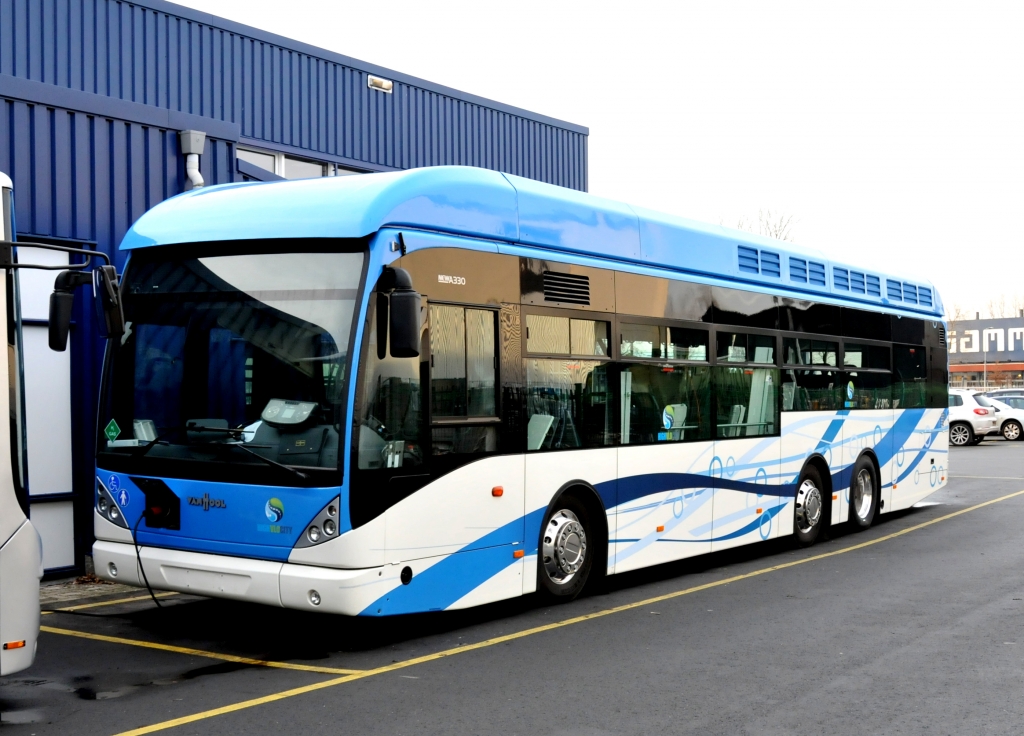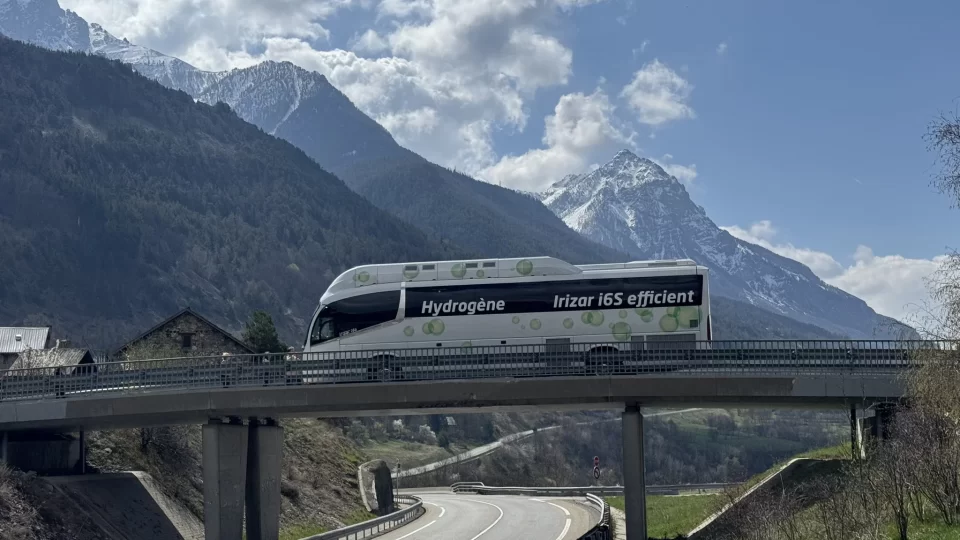Major fuel cell bus order for Solaris from RVK Cologne: 15 Solaris Hydrogen on delivery
Cologne region will have a fleet of 52 fuel cell bus units by 2022. The regional public transport company Regionalverkehr Köln GmbH (RVK) has just placed an order for 15 hydrogen-powered fuel cell buses with Solaris Bus & Coach. It’s the second significant order received from the Polish manufacturer for the new fuel cell Urbino 12, […]
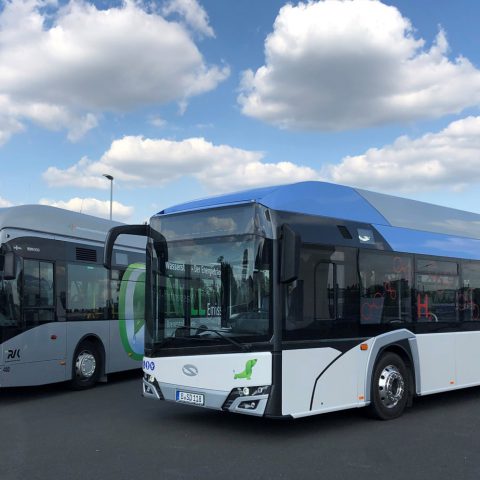
Cologne region will have a fleet of 52 fuel cell bus units by 2022. The regional public transport company Regionalverkehr Köln GmbH (RVK) has just placed an order for 15 hydrogen-powered fuel cell buses with Solaris Bus & Coach. It’s the second significant order received from the Polish manufacturer for the new fuel cell Urbino 12, unveiled at UITP Summit 2020: a batch of vehicles was ordered in Italian Bolzano.
From 2021, these vehicles will be successively integrated into RVK’s fleet. In the meanwhile, 30 Van Hool hydrogen buses are on delivery.
With regards to the urban operations in Cologne, the operator KVB is also strongly implementing the share of battery electric buses: six routes will be converted to zero emission operations thanks to a tender for 53 e-buses won by VDL Bus & Coach.
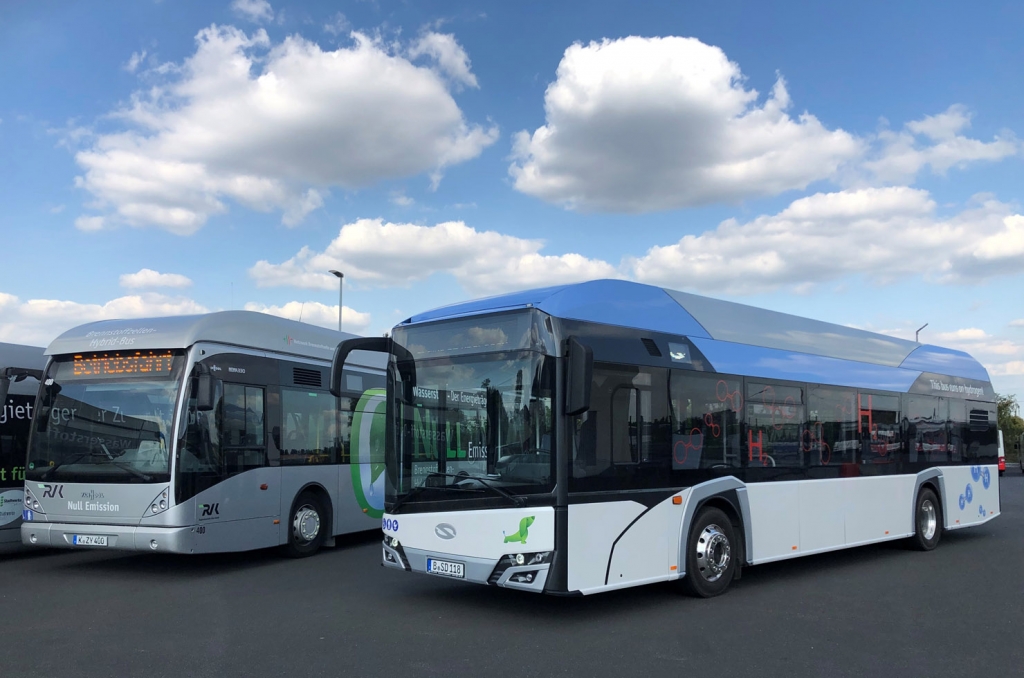
The buses will be purchased as part of the EU project JIVE 2 and will be funded by the “Fuel Cells and Hydrogen Joint Undertaking” (FCH JU), the German Federal Ministry of Transport and Digital Infrastructure (BMVI) via the NIP2 programme and the Ministry of Transport of the State of North Rhine-Westphalia.
Fuel cell buses in Cologne: 625,000 euros per bus
As with the previous bus order awarded to Van Hool, the tender for the buses was issued jointly with Wuppertaler Stadtwerke GmbH. The joint procurement made it possible to comply with the maximum price per bus of 625,000 euros specified by the funding authority. A total of three bids were submitted in the tender, the company points out. Based on the best offer, the contract was awarded to Solaris.
Once all buses will start operation, the company will have a total of 52 hydrogen-powered fuel cell buses by the end of 2021 or beginning of 2022, making it the largest fleet of fuel cell buses in Europe.
Fuel cell buses in Cologne since 2011
RVK began testing fuel cell technology in regular service as early as 2011. Following the test operation of two prototypes, two pre-series vehicles were deployed in 2014 and 35 series production vehicles of the type A330 FC from Van Hool were commissioned at the end of 2019 and in the first half of 2020. The construction of two hydrogen refuelling stations is nearly finalised, RVK points out. The use of biogas buses in the Euskirchen district is also part of this sustainability strategy, which is reflecting regional reality.
“Thanks to the subsidies and the approval of our owners, we are very much closer to a complete restructuring of our bus fleet and infrastructure. This is currently unique in this dimension,” says RVK Managing Director Eugen Puderbach.
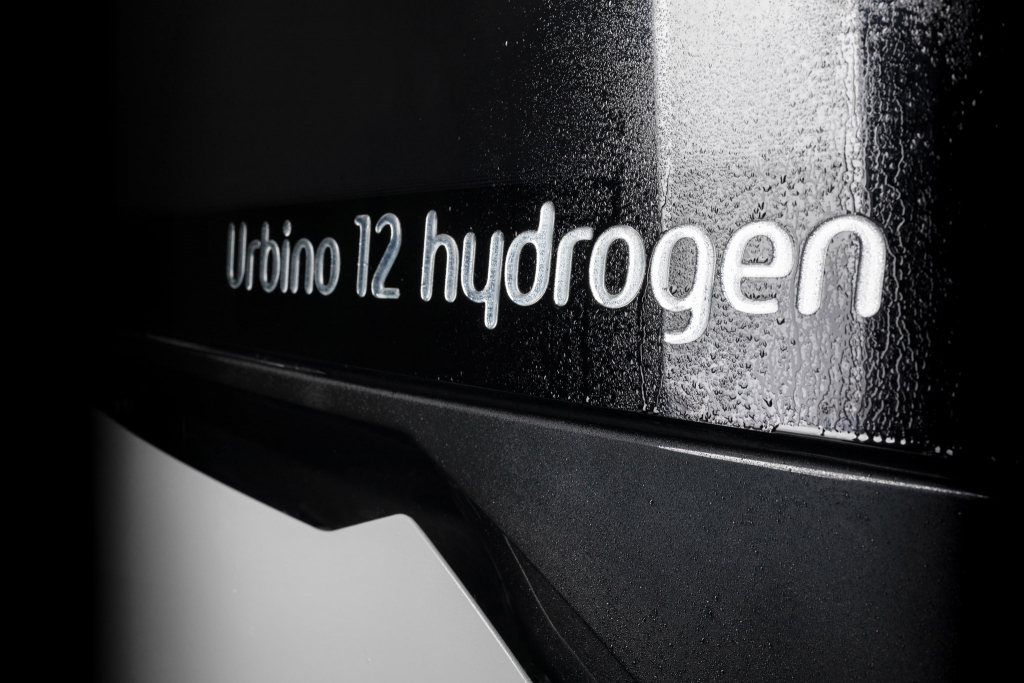
Solaris 12 Hydrogen for RVK Cologne
On the Solaris 12 Hydrogen, the 70 kW fuel cell system provided by Ballard Power Systems goes along with Solaris High Power batteries. The battery is filled with energy derived from hydrogen and through the regenerative braking, though it is also possible to recharge it by means of a plug-in socket.
Complementing the driveline is, as usual, the ZF AxTrax mounted also on the Urbino battery electric. The axle features integrated electric motors (2 x 125 kW). In order to reduce energy use to a maximum, the vehicle will be equipped with a climate control system with a CO₂ heat pump that allows to use waste heat from the fuel cell.
Ballard Power Systems released that the fuel cell modules mounted on the Urbino hydrogen belong to the FCmove-HD range.
Van Hool to deliver 30 A330 FC to RVK
As mentioned above, there will be 30 Van Hool A330 FC (new version) to be delivered in Cologne and further 10 units in Wuppertal (where the first vehicles were supplied a few weeks ago). The 12-meter vehicle, when deployed on flat urban service lines, is equipped with 24 kWh traction battery and 85 kW hydrogen fuel stack.
The version of the bus for regional and hilly city services is fitted with a 36 kWh traction battery. The bus can accommodate up to 75 passengers and weighs 14 tons. They are equipped with an 85 kilowatt fuel cell stack (made by Ballard Power Systems) and a LTO battery. The technology provided by Canadian company Ballard is the common feature between Van Hool and Solaris hydrogen buses. A total of 570 fuel cell buses around the world are powered with such modules.
